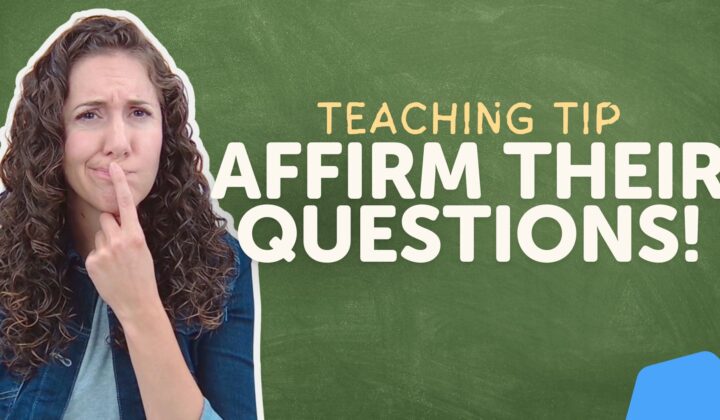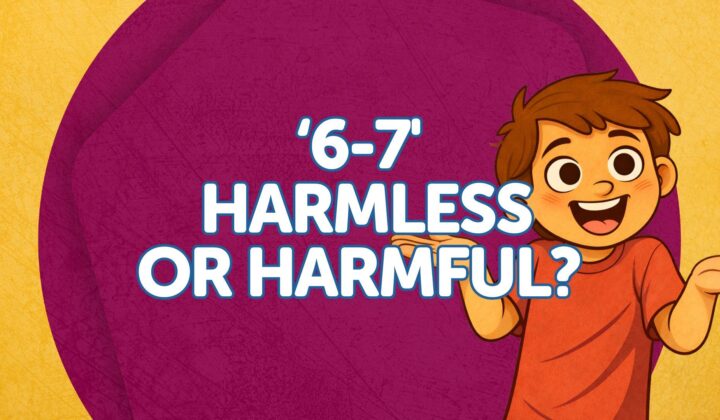Learn more about the journey that led to us equipping kids to carefully evaluate every idea they encounter.
Meet members of our team who have contributed to curriculum development.
Hear from real users of the Foundation Curriculum.
Learn what we believe about God, Jesus, Scripture, and more.
Teaching Our Kids that Christianity is Not Against Science
Have you ever heard the claim that science and Christianity are at odds? A 2011 Barna study found that one of the six primary reasons young adults abandon the faith is their belief that Christianity is anti-science. This is a sad reality. If the God of the Bible truly is the creator and sustainer of all reality, a Christian worldview should support scientific exploration, not stifle it. (I don’t know about you, but I am incredibly grateful for scientific advances like light bulbs, water filtration, and pain medication.) If we want to keep our children from falling for the lie that Christianity and science are at odds, we must help them distinguish science from scientism.
Science is the study of the physical world through observation and experiment. Scientism is the belief that we can only gain knowledge through science. Do you see the difference? Science is a study. Scientism is a worldview. If we want our children to properly understand the Christian worldview, we must help them discern between the two. Here are three easy steps that can help our kids appreciate science within the Christian worldview and see the limit of scientism as a worldview.
1. Conduct a Science Experiment Together
If we want our children to see that Christianity and science go hand in hand, we first must model for them embracing science as an exciting and beneficial tool. To begin this process, find a science experiment you can do with your children. (If you’re intimidated by this, here’s a simple experiment that only requires a glass, water, salt, and an egg.) Once you have chosen an experiment, walk through the basic steps of the scientific method together.
- Ask a question. (Can an egg float in either freshwater or saltwater?)
- Make a prediction. (No, an egg cannot float in either fresh or saltwater.)
- Test your prediction. (Conduct the experiment.)
- Answer your initial question. (An egg can float in saltwater, but not in freshwater.)
2. List Things We Can Learn from Science
After you have conducted the experiment, ask your children what they learned. Take time to analyze your observations and discuss experiments you may want to conduct in the future. Next, ask your children if science is a useful tool or if it’s something we do not need. (If they say it is something we do not need, point out all of the modern conveniences and health benefits we have thanks to scientific discoveries.) Then come up with a list of different things we can learn by using the scientific method. For example, through science we can discover the best conditions for growing food. We can also produce fuel that helps our cars run more efficiently. And we can develop cures for diseases. Explain that there are many things we can learn from science and that scientists make new discoveries every day!
3. Discuss Things We Cannot Learn from Science
Next, ask your children if there are things we cannot learn through science. Allow them time to process, as this question requires deep thinking. If they have difficulty coming up with an answer, tie the question to the experiment you just completed. If you conducted the floating egg experiment, you could ask, “Can science tell us how to use the knowledge we gained from this experiment?” Discuss how science can help you discover that eggs float in saltwater, but it cannot tell you what you should do now that you know that. You could also ask, “Can science tell us whether or not it is right to dump cartons of eggs in the ocean?” Discuss how science cannot answer this question. That is because science cannot teach us what is morally right and what is morally wrong. These observations are essential, as they help our children discern both the benefits and limits of science.
As Christians, we should want our children to view science as a valuable tool for gaining knowledge about the physical world. However, we need to help them see the foolishness of believing science is the only way of gaining knowledge. Once our children understand the difference between these two claims, they will see that Christianity is at odds with scientism, not science.

About Elizabeth Urbanowicz
Elizabeth Urbanowicz is a follower of Jesus who is passionate about equipping kids to understand the truth of the Christian worldview. Elizabeth holds a B.S. in Elementary Education from Gordon College, an M.S.Ed. in Education from Northern Illinois University, and an M.A. in Christian Apologetics from Biola University. Elizabeth spent the first decade of her professional career teaching elementary students at a Christian school. Elizabeth now works full time on developing comparative worldview and apologetics resources for children. Her goal is to prepare the next generation to be lifelong critical thinkers and, most importantly, lifelong disciples of Jesus.
Related Posts and insights

Affirm the Questions of the Children You Are Teaching
Affirm children’s questions to foster curiosity and lifelong learning. Discover a simple, biblical strategy for building a love of learning.

How Should Christians Respond to the "6 7" Trend? Helping Kids Think Biblically About Cultural Phrases
How should Christian parents handle the "six seven" trend? Learn to avoid the genetic fallacy and guide your kids to think biblically about cultural phrases.

How Do We Explain the Doctrine of Election to Kids?
How do you explain the doctrine of election to kids without causing fear? Discover how Scripture's promises bring peace and assurance to children's hearts.
